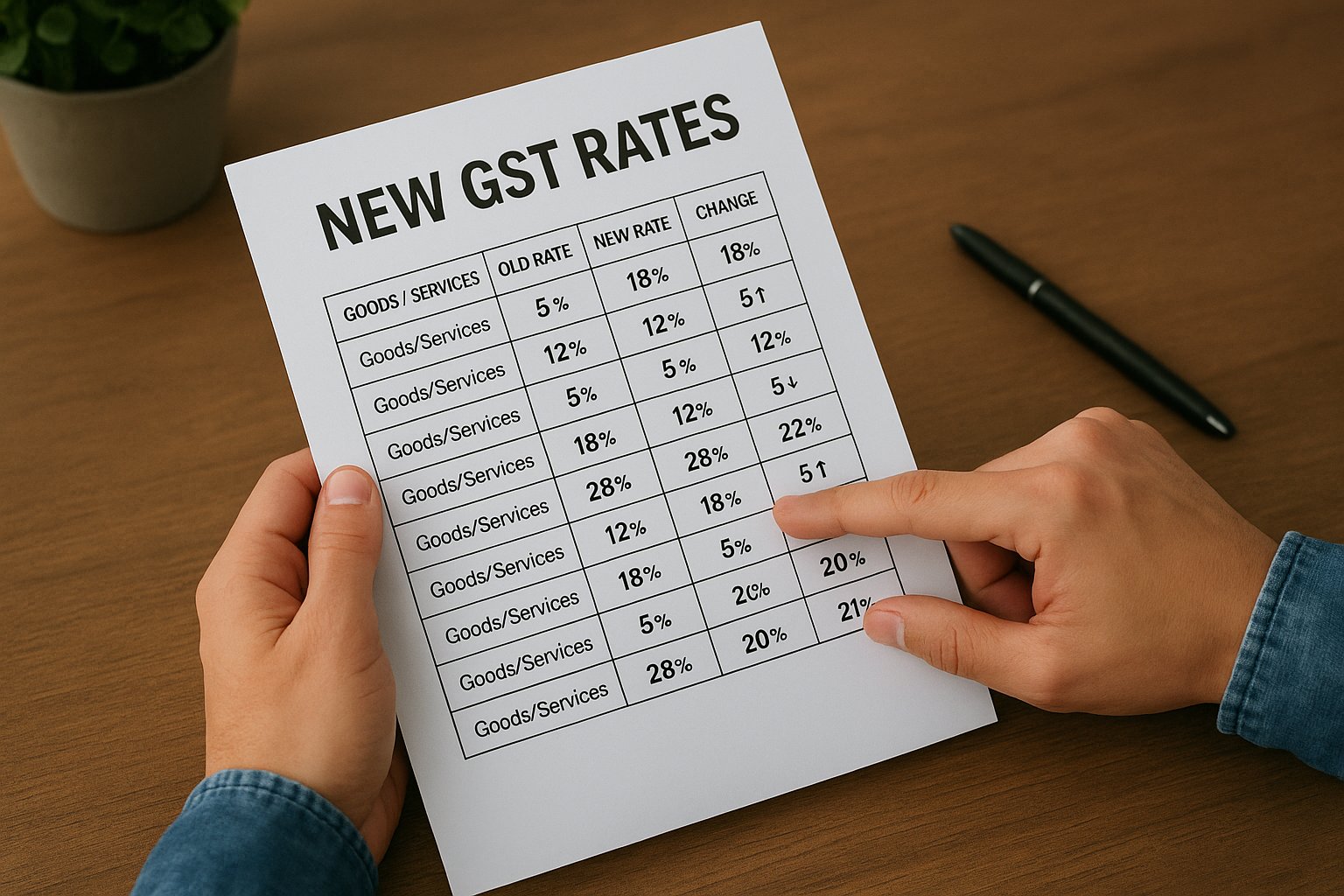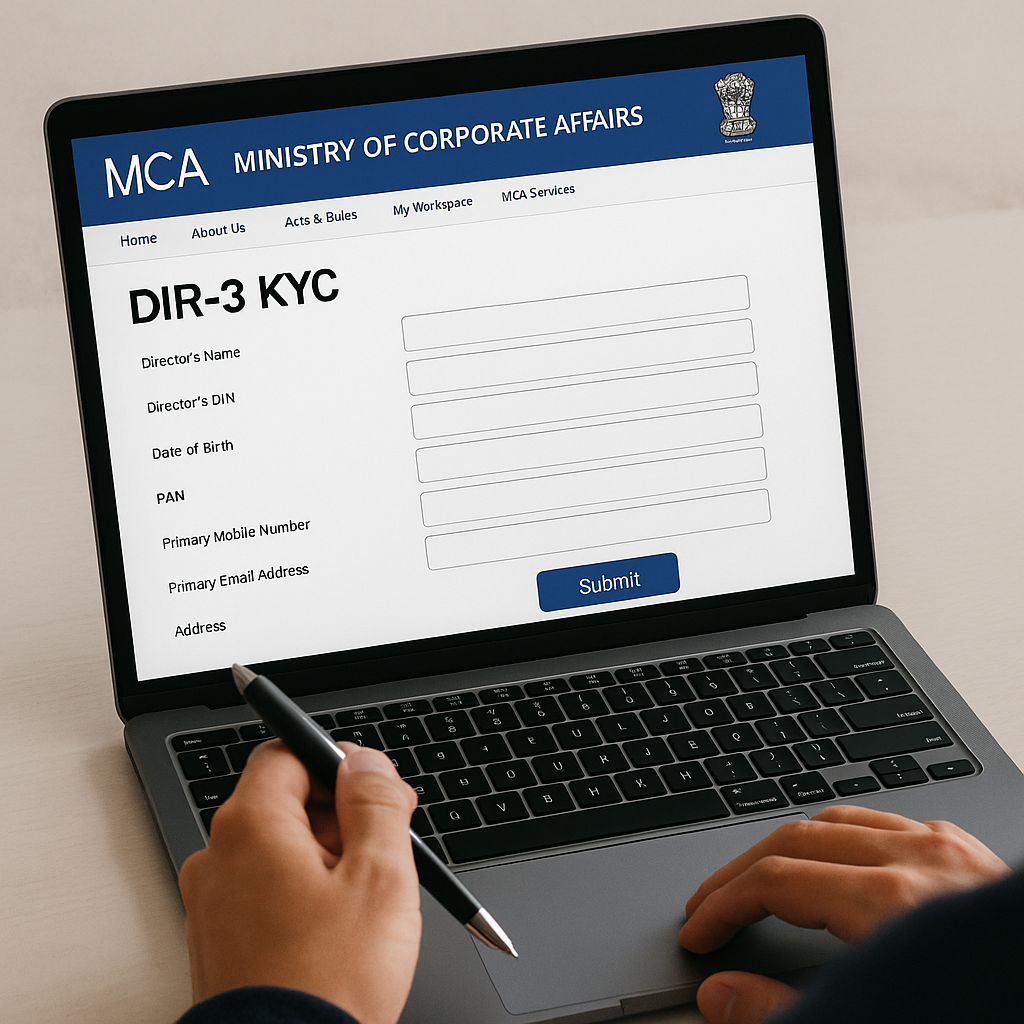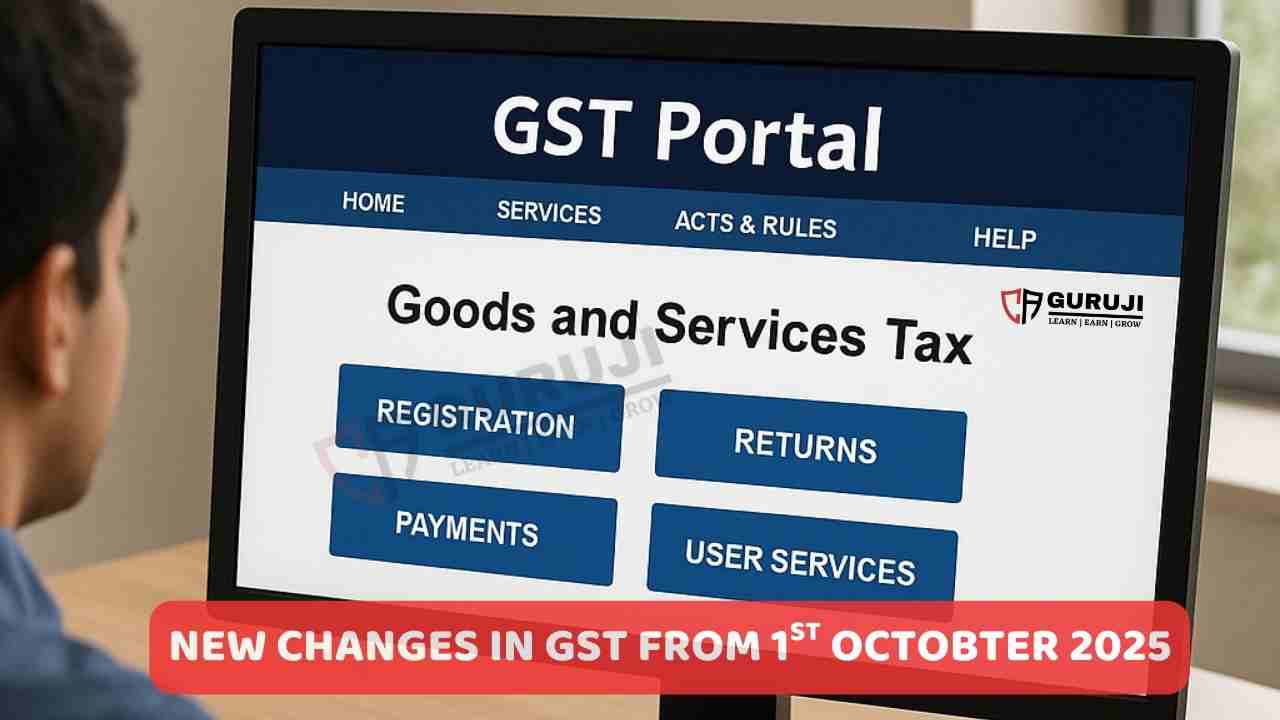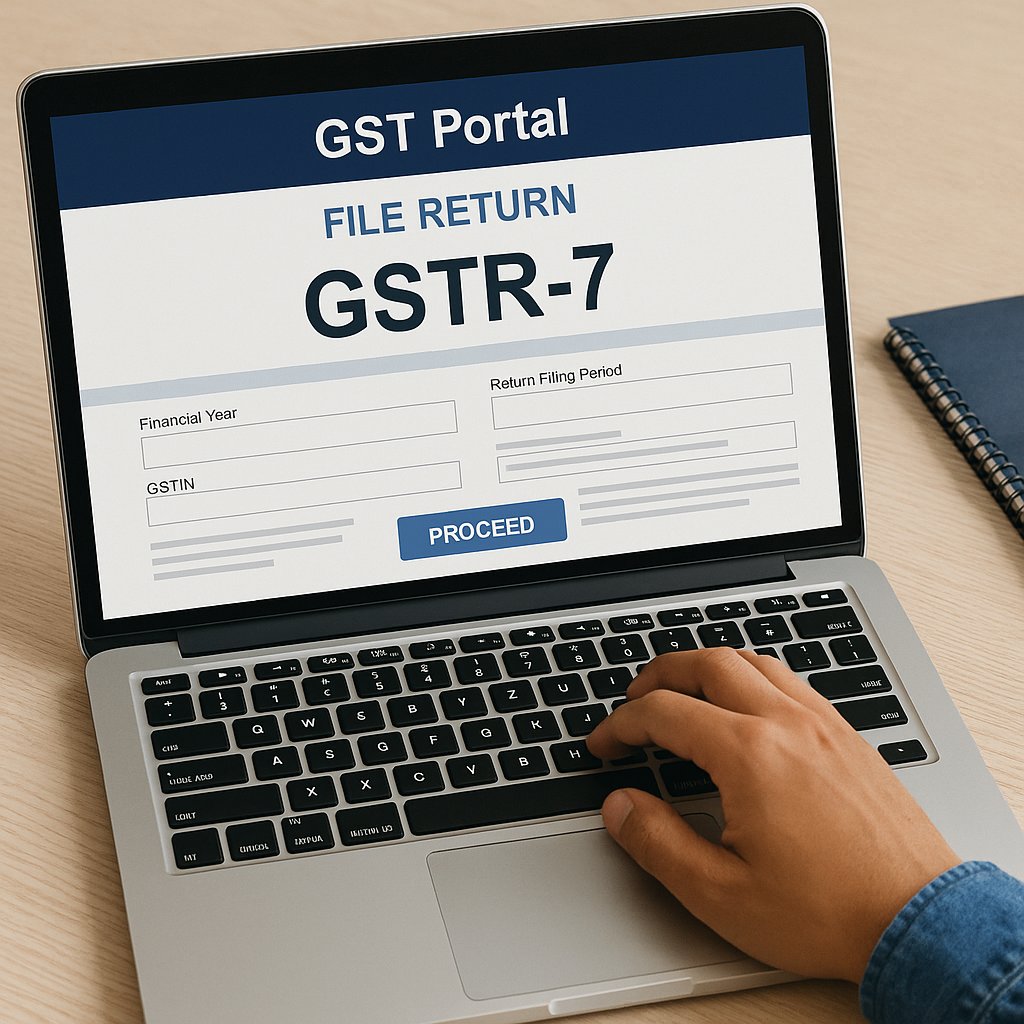The Government of India has announced the Next-Gen GST Reform, positioned as a historic Diwali gift for the nation. With the vision of building an Aatmanirbhar Bharat and making life easier for citizens, the reform brings sweeping changes that reduce taxes on essential goods, agriculture, healthcare, education, and more. It also focuses on simplifying compliance processes for businesses.
1. Relief on Daily Essentials
Households will now save significantly on everyday items:
- Hair Oil, Shampoo, Toothpaste, Toilet Soap, Toothbrushes, Shaving Cream: Reduced from 18% to 5%
- Butter, Ghee, Cheese & Dairy Spreads: Reduced from 12% to 5%
- Pre-packaged Namkeens, Bhujia & Mixtures: Reduced from 12% to 5%
- Utensils: Reduced from 12% to 5%
- Feeding Bottles, Napkins for Babies & Clinical Diapers: Reduced from 12% to 5%
- Sewing Machines & Parts: Reduced from 12% to 5%
2. Support for Farmers & Agriculture
Agriculture has been given a major boost with lower GST on key inputs:
- Tractor Tyres & Parts: Reduced from 18% to 5%
- Tractors: Reduced from 12% to 5%
- Bio-Pesticides, Micro-Nutrients: Reduced from 12% to 5%
- Drip Irrigation System & Sprinklers: Reduced from 12% to 5%
- Agricultural, Horticultural or Forestry Machines for Soil Preparation, Cultivation, Harvesting & Threshing: Reduced from 12% to 5%
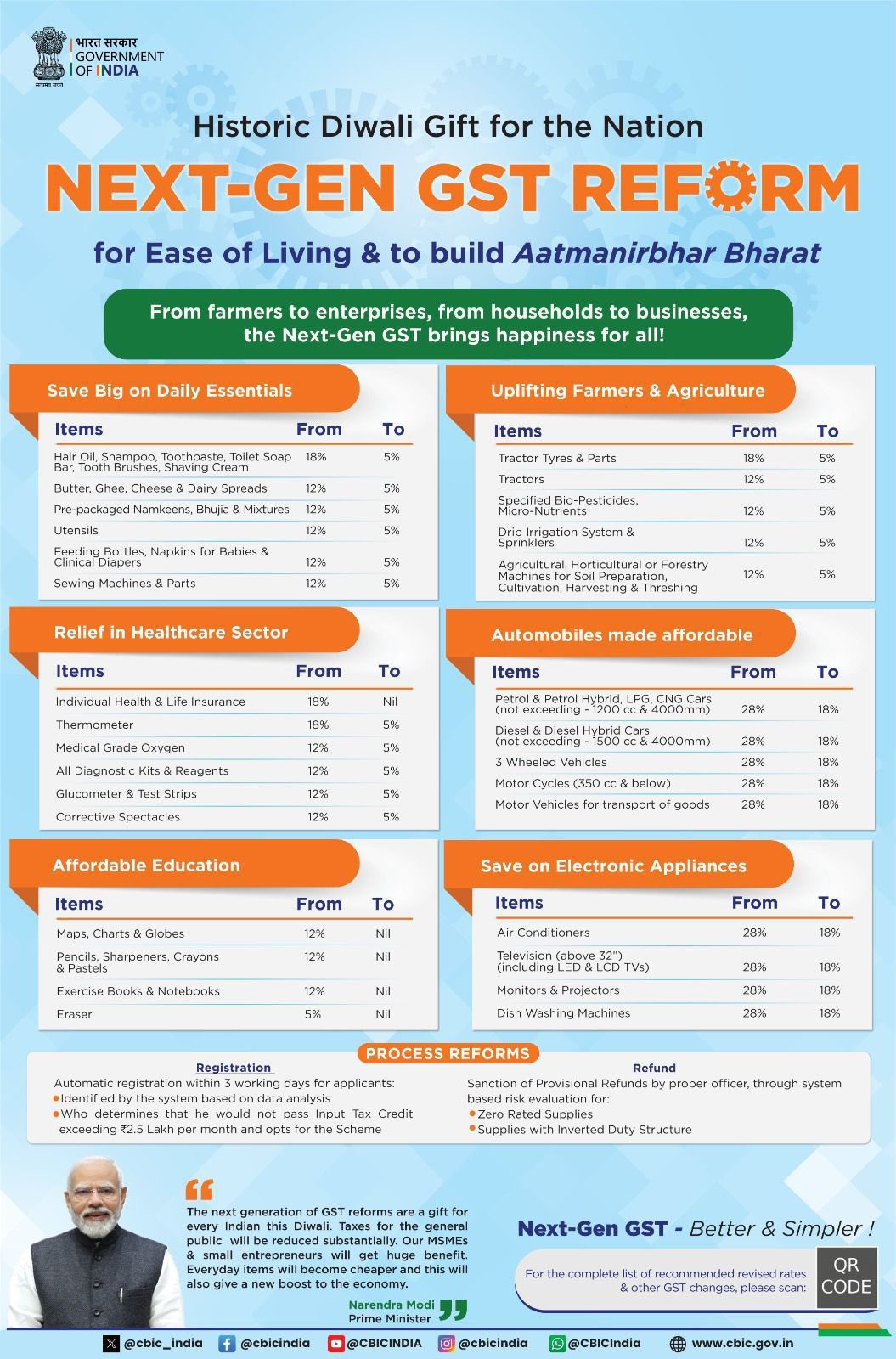
3. Healthcare Sector Relief
Healthcare has been prioritized with several items either exempted or taxed lower:
- Individual Health & Life Insurance: Reduced from 18% to Nil
- Thermometers: Reduced from 12% to 5%
- Medical Grade Oxygen: Reduced from 12% to 5%
- All Diagnostic Kits & Reagents: Reduced from 12% to 5%
- Glucometers & Test Strips: Reduced from 12% to 5%
- Corrective Spectacles: Reduced from 12% to 5%
4. Affordable Education
To make education more affordable, key learning tools are exempted:
- Maps, Charts & Globes: Reduced from 12% to Nil
- Pencils, Sharpeners, Crayons & Pastels: Reduced from 12% to Nil
- Exercise Books & Notebooks: Reduced from 12% to Nil
- Erasers: Reduced from 5% to Nil
5. Automobiles Made Affordable
Vehicle costs are set to decline with lower GST rates:
- Petrol & Petrol Hybrid, LPG, CNG Cars (up to 1200 cc & 4000 mm): Reduced from 28% to 18%
- Diesel & Diesel Hybrid Cars (up to 1500 cc & 4000 mm): Reduced from 28% to 18%
- 3-Wheeled Vehicles: Reduced from 28% to 18%
- Motorcycles (350 cc & below): Reduced from 28% to 18%
- Motor Vehicles for Transport of Goods: Reduced from 28% to 18%
6. Savings on Electronics & Appliances
Electronic goods for households will become cheaper:
- Air Conditioners: Reduced from 28% to 18%
- Televisions (above 32”, including LED & LCD TVs): Reduced from 28% to 18%
- Monitors & Projectors: Reduced from 28% to 18%
- Dishwashing Machines: Reduced from 28% to 18%
7. Process Reforms for Ease of Doing Business
The Next-Gen GST Reform not only reduces rates but also simplifies compliance for businesses:
- Registration:
- Automatic registration within 3 working days for applicants identified as non-risky.
- System based on data analytics to determine eligibility.
- Taxpayers exceeding ₹2.5 lakh per month ITC and opting for the scheme will be scrutinized.
- Refunds:
- Provisional refunds through a risk-based system.
- Faster refund processing especially for exports, zero-rated supplies, and inverted duty structure cases.
8. Vision of the Reform
The government envisions this reform as a step toward making taxation better and simpler. It eases the cost of living for citizens, supports MSMEs and startups, and boosts overall consumption. As Prime Minister Narendra Modi highlighted, this initiative will not only provide relief to households but also give a new momentum to India’s economy.
✅ In summary: The Next-Gen GST Reform is a comprehensive package—reducing GST rates on essentials, agriculture, healthcare, education, electronics, and automobiles, while also simplifying compliance. It aims to make daily living more affordable and business operations more efficient, marking a new chapter in India’s tax landscape.
Visit www.cagurujiclasses.com for practical courses
